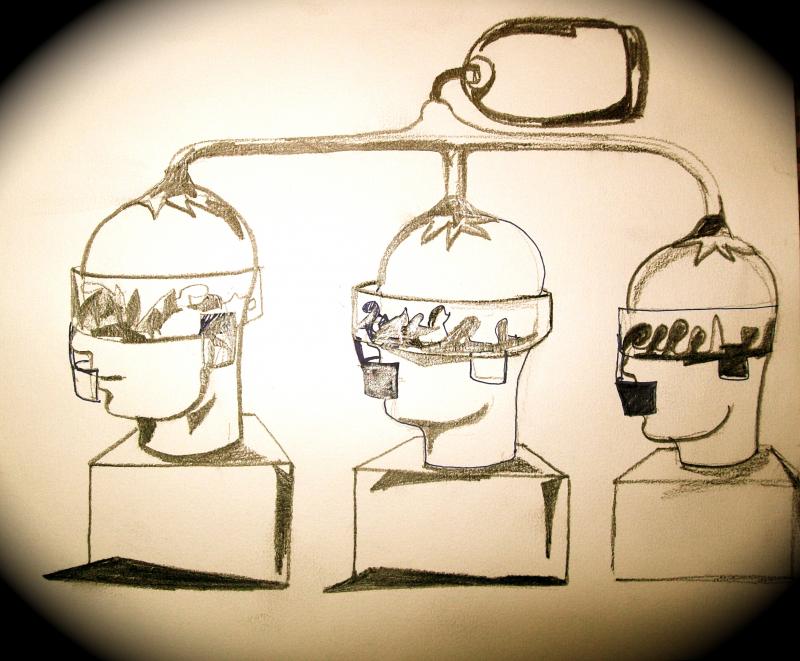
One of the biggest confusions in India is that we equate 'education' and 'the culture of schooling' with 'shiksha'. But their philosophical, epistemological and pedagogical roots are fundamentally different. Another major area of confusion is that we believe that school is just limited to what happens inside the four walls of the classroom. We don't understand the larger game and how it has infiltrated into our everyday lives...
The Culture of Schooling...
- Labels, ranks and sorts human beings. It creates a rigid social hierarchy consisting of a small elite class of 'highly educated' and a large lower class of 'failures' and 'illiterates', based on levels of school achievement.
- Imposes uniformity and standardization. It propagates the viewpoint that diversity is a problem, which must be removed if society is to progress.
- Spreads fear, insecurity, violence and silence through its externally-imposed, military-like discipline.
- Forces human beings to violently compete against each other over scarce resources in rigid win-lose situations.
- Confines the motivation for learning to examinations, certificates and jobs. It suppresses all non-school motivations to learn and kills all desire to engage in critical self-evaluation. It centralizes control over the human learning process into the State-Market nexus, taking power away from individuals and communities.
- Commodifies all human beings, Nature, knowledge and social relationships. They are to be extracted, exploited, bought and sold.
- Fragments and compartmentalizes knowledge, human beings and the natural world. It de-links knowledge from wisdom, practical experiences and specific contexts.
- Artificially separates human rationality from human emotions and the human spirit. It imposes a single view of rationality and logic on all people, while simultaneously devaluing many other knowledge systems.
- Privileges literacy (in a few elite languages) over all other forms of human expression and creation. It drives people to distrust their local languages. It prioritizes newspapers, textbooks, television as the only reliable sources of information. These forms of State-Market controlled media cannot be questioned by the general public.
- Reduces the spaces and opportunities for 'valid' human learning by demanding that they all be funneled through a centrally-controlled institution. It creates artificial divisions between learning and home, work, play, spirituality.
- Destroys the dignity of labor; devalues the learning that takes place through manual work and does not recognize the intelligence of the body.
- Breaks intergenerational bonds of family and community and increases people's dependency on the Nation-State and Government, on Science and Technology, and on the Market for livelihood and identity.
Check out this Book of Cartoons on the Culture of Schooling.
- Log in to post comments




